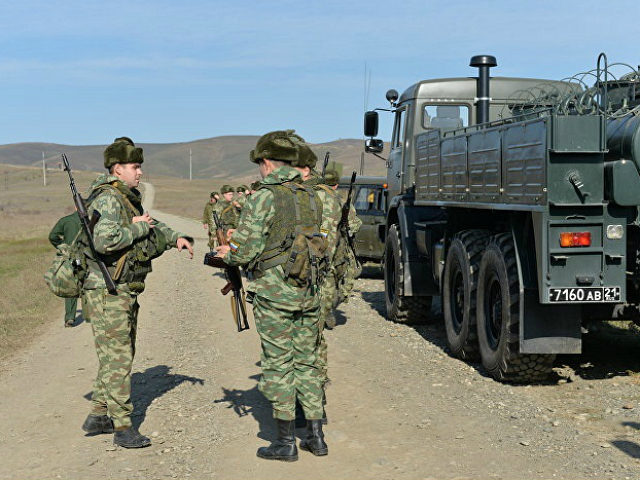On Tuesday, Russian President Vladimir Putin ordered the approval of an agreement that will effectively integrate the armed forces of Georgia’s South Ossetia region with the Russian military. Georgia condemned the move, which has been criticized as a plan to consume the entire province.
Reuters notes that Moscow has effectively “controlled South Ossetia, a sliver of mainly mountainous land in the northeast of Georgia, for years,” but it is still nominally a separate state, situated on sovereign Georgian soil.
“According to the text of the draft agreement that Putin ordered his officials to conclude, the separatists will adopt new operating procedures for their armed forces which will be subject to approval by Moscow, and the forces’ structure and objectives will be determined in agreement with Russia,” Reuters reports.
“The agreement also states that members of the South Ossetian armed forces can transfer to serve as Russian soldiers on a Russian military base in South Ossetia. The separatists will shrink their own armed forces by the number of servicemen employed at the Russian base,” the report continues.
Georgian Foreign Minister Mihkeil Janelidze blasted the agreement as “illegitimate” and said it would impede peaceful “conflict resolution.” South Ossetia fought a war to secede from Georgia after the fall of the Soviet Union. In 2008, after separatists attacked Georgian troops, Russia launched airstrikes against the Georgian government in South Ossetia. Russia remains one of the few nations to recognize South Ossetia, which has a population of less than 55,000, as an independent entity.
“Russia’s critics say the war in South Ossetia was a dress rehearsal by Russia for its annexation in 2014 of Ukraine’s Crimea Peninsula, and its support for separatist fighters in the eastern Ukrainian Donbass region,” Reuters notes.
South Ossetia bestowed a posthumous award upon Vitaly Churkin, the late Russian ambassador to the United Nations, on Tuesday. The award, known as the Order of Uatsamonga, is South Ossetia’s highest honor. Churkin’s efforts on behalf of South Ossetian independence were cited in the decree, which was read to Churkin’s widow at the South Ossetian embassy in Moscow.
The Irish Times anticipates that the slowly accelerating fusion of South Ossetia and Russia will not sit well with the European Union, especially if secessionist movements in other former Soviet satellites are inspired by the Ossetian example:
Alarmed but unwilling – unable – to do anything, the European Union watches on. The dispute and union’s impotence epitomise its difficult relationship with Russia and the former Soviet states which the latter still regards as its “sphere of influence”, Russian minorities in most of them still under Moscow’s protective wing. The EU’s response, notably in Ukraine, has been fumbling and uncertain.
Of the six former Soviet states which participate in the EU’s “Eastern Partnership” – Armenia, Azerbaijan, Belarus, Georgia, Moldova and Ukraine – only Belarus has made it through the last quarter century without being involved in armed conflict internally, while the latter joins Azerbaijan as the most politically stable of the regimes, albeit the most authoritarian.
“Russia knows it can continue its bullying. Putin regards South Ossetians as Russians that, like Crimeans, history has wrongfully parted from their homeland,” the Irish Times warns. The article goes on to worry that U.S. President Donald Trump’s criticism of NATO will weaken one of the last remaining checks on Russia’s appetite, although it also acknowledges that NATO will never deliver on its vague promises of security to Eastern European nations, as Moscow is perfectly well aware.
An NPR correspondent visiting Georgia noted that residents of southern Georgia are now surrounded by Russian and effectively Russian territory on three sides, and no one is exactly certain of where the border is, or what happens to people who wander across it. Russia has unhelpfully decided not to publish the old military maps that allegedly define the borders of South Ossetia, making life increasingly difficult for the locals.
Last month, the United States condemned a South Ossetian referendum to rename the region as “The Republic of South Ossetia – Alania.” The region on the other side of the Russian border is known as “The Republic of North Ossetia – Alania.” Russia’s assimilation of South Ossetia might be slow-moving, but it is not always subtle.

COMMENTS
Please let us know if you're having issues with commenting.